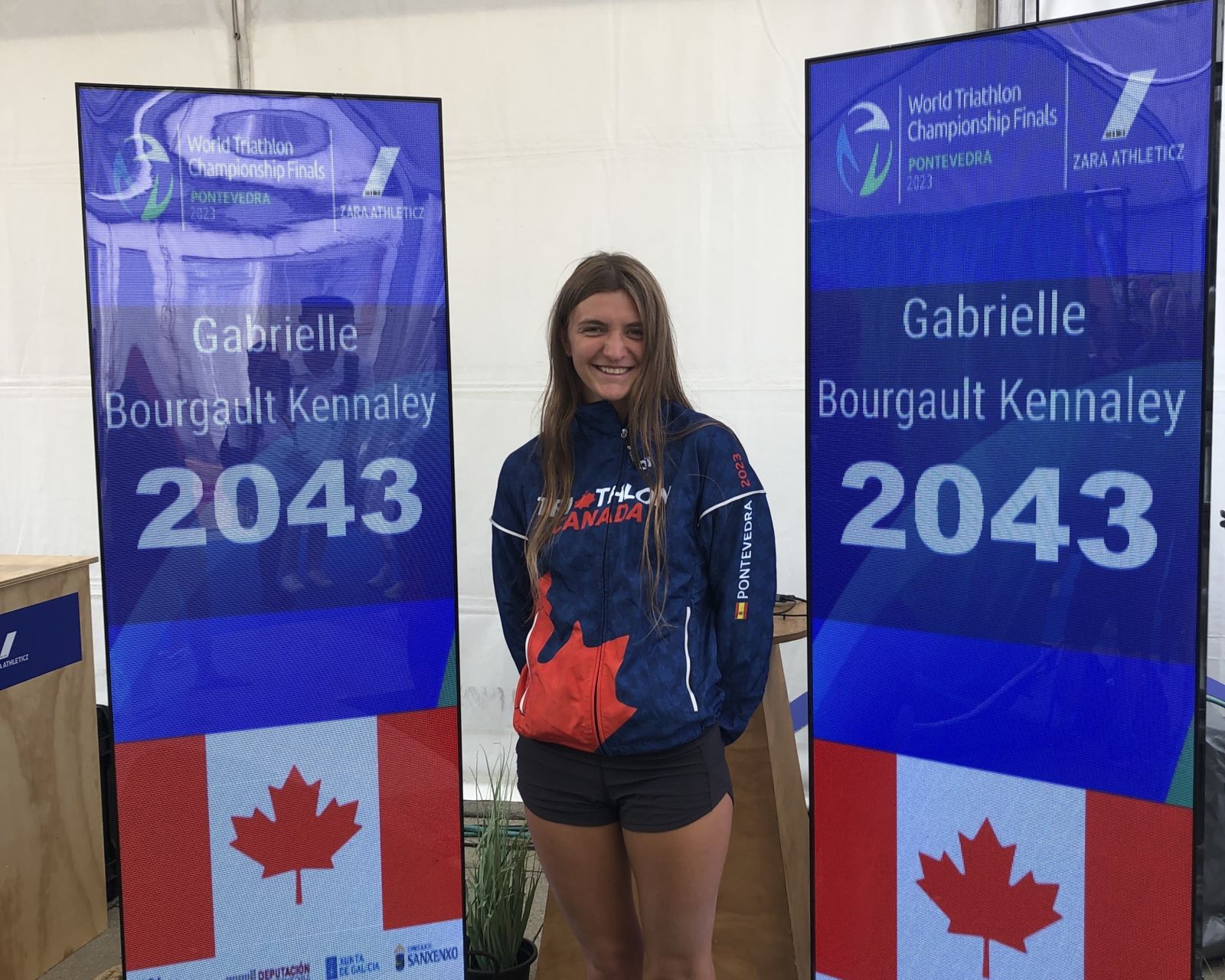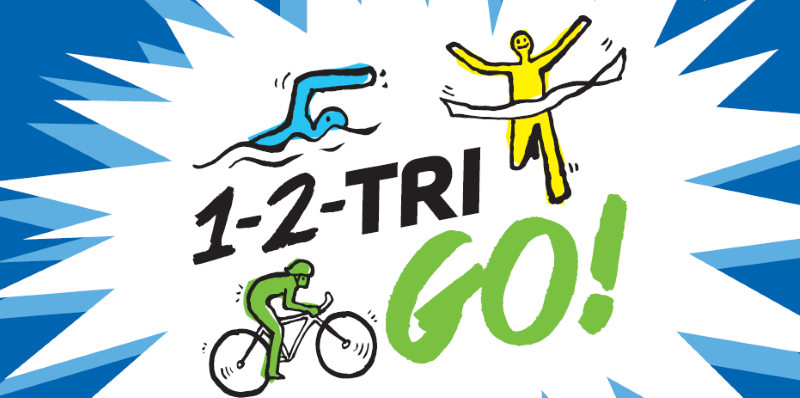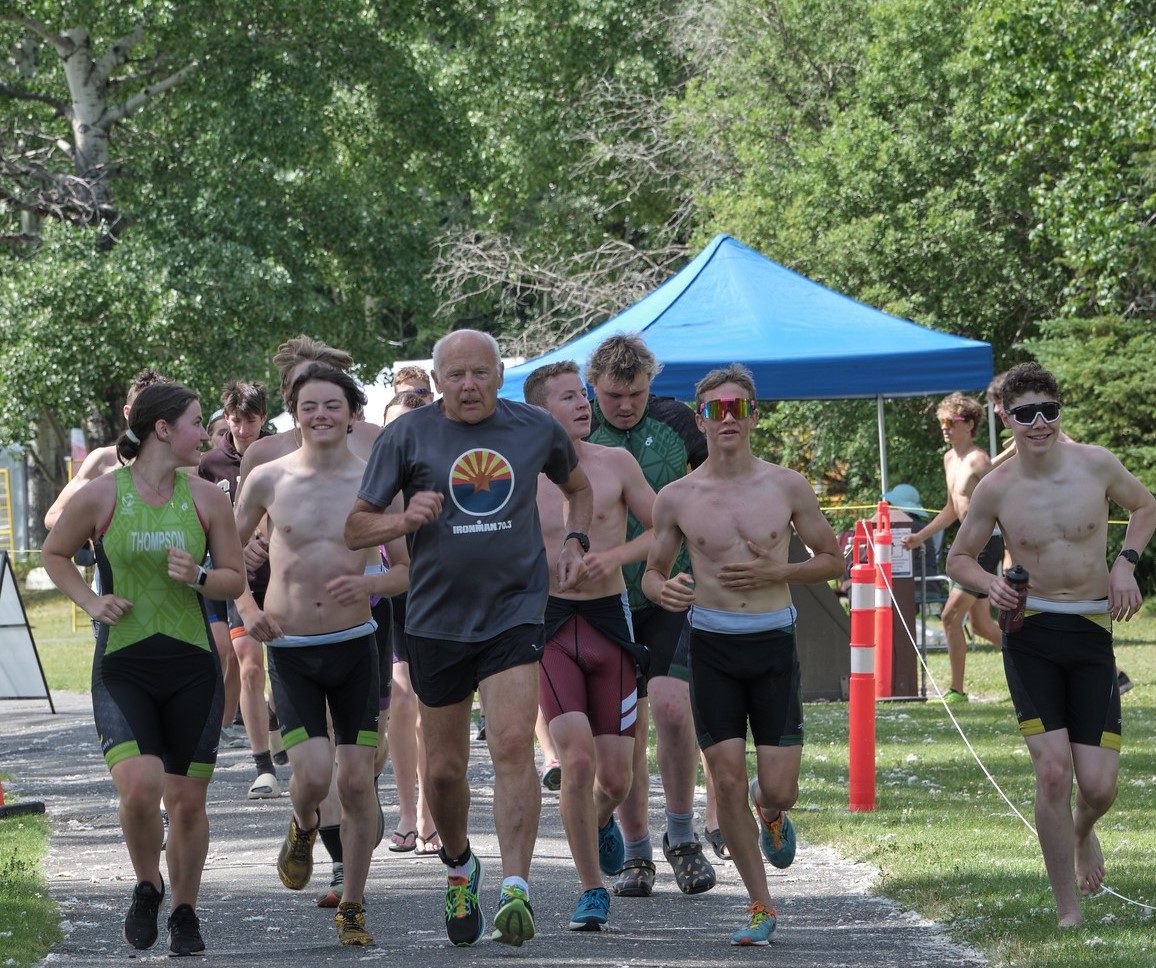We caught up with Gabby Bourgault Kennaley, to share her race experience from the Age-Group World Championships in Pontevedra Spain, and her athlete pathway from BC Games competition to varsity triathlete at UBC.
Can you share a bit about that experience – What was race day like and how did your race unfold?
I was actually sick for the 9 days I was in Portugal and Spain leading up to the race. Fever, burning throat, cough, congestion, ear infection… you name it, I had it! It miraculously (mostly) cleared two days before the race, and so with only a quick course familiarization, I was feeling less than optimistic for how the race would unfold. My swim was feeling the strongest, and so race morning I set myself the goal of just seeing what I could do on the swim and let my body settle into a comfortable pace from there.
I got out quick to the front on the swim and pushed through the burn to keep pace with the lead girls just ahead. Transition was cold and gone in a blur, and then I was on the bike. The bike course was intimidating—a steady uphill with a 2km climb right before the turnaround, done twice. A girl from Japan and two from the USA passed me on the way out, but I started to regain ground on that hill. Flying back down, I told myself I was going to have a faster second split and pass those girls on the hill. My legs burned up the hill in a way I knew would get me on the run, but I was so excited by how strong my lungs felt after so long of feeling weak and so I crushed the second loop.
I thought I was in fourth place the entire run. My mom kept telling me I was in third behind New Zealand and Japan, but on the screen I thought I had seen fourth. The run course in Pontevedra was fantastic: four laps, windy through the beautiful old town, with a steep climb and steeper descent. At the base of the big climb was a group of a dozen Canadians who were the loudest cheerers on the course. I crushed the first two laps, the energy of all the spectators and racers carrying me. And then it started to hurt. My lips, left foot and hand went numb. I was still at least thirty seconds back from Japan and fighting to reach the podium. I never caught her. It wasn’t until I was lying on the ground post-race in a daze that my mom showed me the results online that I finally believed that I had done it. It was quite possibly the widest range of emotions I’ve ever experienced in a race.
What was the overall experience like at Age-Group World Championships – What was your favourite part?
Inspirational. The day before the Age-Group races, the U23 and Elite Men raced. I’d been to Lausanne and Montreal for Worlds before, but neither of those came close to having as many spectators as that Elite Men race did. Triathletes and locals flooded the streets so it was nearly impossible to walk. I was inspired by how incredible people can be as athletes, both in the men’s and women’s races, and also in how supportive and full of life a community can be. Pontevedra locals were such a vibrant part of the entire event, welcoming and excited even though they might’ve never heard of triathlon before!
Let’s go back to the beginning… How did you get started… What got you into triathlon?
I hated triathlon. My mom was an IronMan triathlete before I was born and still trains to this day, and so she thought it would be a fun idea for my sister and I to try one. I was 7 or 8 years old when I did my first race in Peterborough, Ontario and finished in the last quarter of the kids my age. My little sister proclaimed she would never do a triathlon again, but I continued on to race a kids of steel race every year. The swim was easy, I was already loving my competitive swim club. I hated the couple of bikes and runs I would do with my mom leading up to the race, but she was so happy to be sharing something she loved with me that I did them with a smile.
It was only after talking to an older swimmer in my club about how they went to BC Summer Games for triathlon that I thought that might be fun. I did four races that year and finally qualified at the North Shore Triathlon. Needless to say I’ve been hooked since.
Were you part of a club or training group when you were younger (under-16)
I started seriously training for triathlon with the Exceleration Triathlon Club when I was 14 and going to BC Summer Games. I learnt so much there, from skills to safety, but perhaps most importantly they brought me into a supportive community. Before we could leave practice Kris Hildebrand would make us answer three questions: what’s something you did well today, what’s something you learnt, and what’s one new person you met’s favourite ice cream flavour?
You have competed in the BC Summer Games – can you share a bit about that experience as a young athlete?
BC Summer Games is what made me fall in love with the sport of triathlon. Meeting other kids from across the province for a weekend of competitive but team-oriented racing was an amazing experience. Though I was just beginning, I could already see progress from working hard, and this race showed me the potential I could reach if I kept training and racing alongside other great kids.
As a Junior, you competed at the World Triathlon Grand Final in Lausanne Switzerland, what was the highlight from that event?
I competed in the 16-19 Age Group World Championships for the sprint in Lausanne. At the time I had been competing at the Junior level and just done my first CAMTRI, and so I went into Lausanne thinking the field wouldn’t be as competitive. I was wrong! Competing at the international stage was a great experience and eye-opener to just how diverse and wide-spread the sport of triathlon really is.
How did the pandemic impact your sport involvement and pathway?
The first thing I did when the pandemic hit was hit the trails. I was in my senior year of high school when lockdown was put in place—just one more month until AP exams and then a month of celebrations until I would graduate. With those plans cancelled, a few friends and I turned to trail running, biking, and open-water swimming. We would meet almost all day, every day doing every possible outdoor activity from Hope to Squamish.
Before the pandemic, I had still been on the path to competing as a Junior and eventually U23. After that summer of training just for the pure pleasure of it and not for races, and then the challenging winter that was my first year of engineering online, I decided I didn’t need to do triathlon to race at the highest competitive level. Now I train and race for my own personal progress and love of the sport.
How did you get involved with the UBC Triathlon Club – can you share some details about the club?
I first heard about the UBC Triathlon Thunderbird Sports Club (TSC) at the UBC TriDu I did when I was younger. I tried out my first year even though practices were limited by the pandemic and loved the team. We all share a similar mindset of working together at practices and races to perform to the best of our abilities.
This is my fourth year on the team and now I’ve taken on the role of fundraising executive. Being a leader on the team and helping to integrate new students who have maybe never raced a triathlon before is amazing so far, as I get to share and grow the triathlon community. Just because we have a range of athletes with different experience doesn’t mean we aren’t strong competitors though—we’re headed back to the Toronto Triathlon Festival this July to reclaim our spot as the collegiate national champs!
What does the average week look like for you right now, balancing school and training?
I’m in my fourth and final year of environmental engineering at UBC, so school can be a lot! I try to complete three practices of each discipline with the team after classes and before work or studying at night. Being a student-athlete means I can’t sacrifice either—but sometimes the adrenaline of a time crunch is all I need to get it all done before bed so I can still get my nine hours sleep!
Do you have any big plans or goals for 2024?
Graduating means the plan so far is to make a plan! As of now I’m registered for the 2024 Age Group World Championships, but we will see how that pans out with work. If it does though, we’ll see if I can break my record from 2023!
Who is your sporting Idol?
I like to think I’m following in my mom’s footsteps when I’m training and racing for triathlon—it’s something timeless we share. I am inspired by her abilities and accomplishments; she went to Kona for IronMan Worlds, a goal I have for sometime later in life. But more impressive is how she’s kept the triathlon mentality and lifestyle even after she stopped racing.
What is your favourite pre race, and post race meals?
I like to keep it simple when it comes to food. Before a race I always have orange juice and a peanut-butter toast. And when I’ve crossed the finish line all I want is the chocolate milk and watermelon I’ve been craving all race!
What’s on your pre race, or training, playlist?
I usually don’t listen to music training or before a race—there are enough random song snippets constantly circulating in my brain!
What advice would you have for any athletes targeting qualification for age-group world championships?
I’m notorious for either having the best race of my life or completely blowing up, but that’s not to say that I’m not expecting the outcome of every race, and that’s because I know how I’ve been training in the weeks and years leading up to it. Once you have set a goal—be it qualifying for age-group worlds, improving from your previous time, or just getting your running shoes on quicker—all that’s needed is consistent and smart training, meeting those goals in practice so that they translate to race day.
Thank you so much for your time – congratulations on your performances so far this year, and we’re looking forward to seeing more great results in the future!




